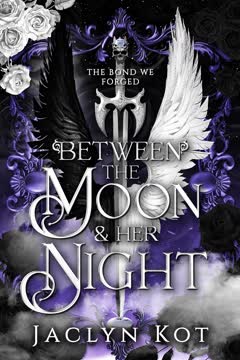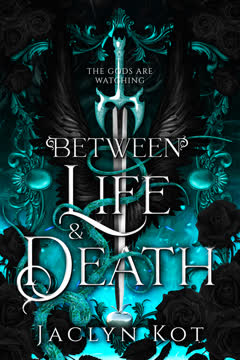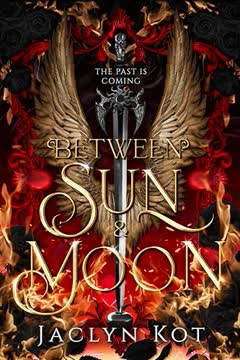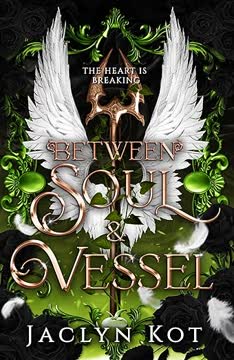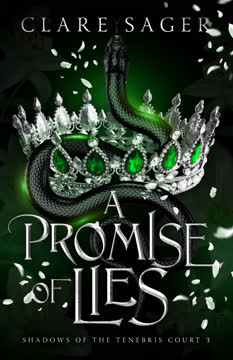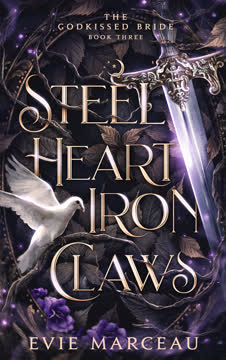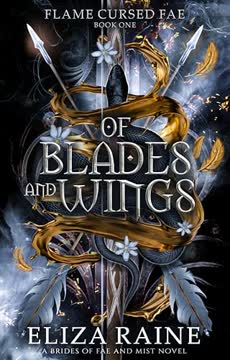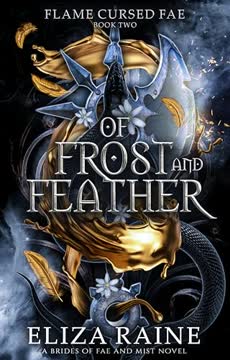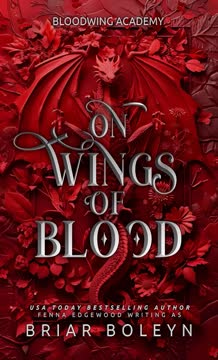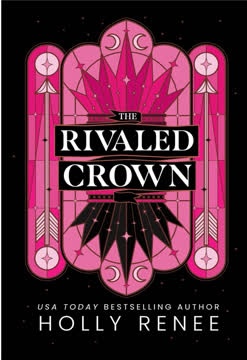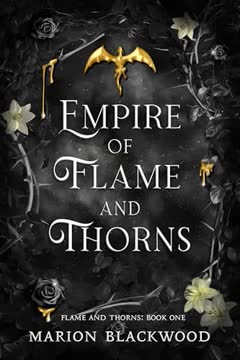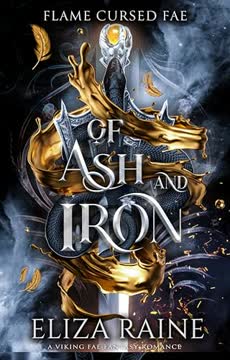Plot Summary
Born of Moonlight
Aurelia, the protagonist, is created from the heart of the God of Life, Aurelius, and the moon's womb, destined to be the Goddess of Life. Her existence is both miraculous and tragic: she is made to be a consort and mother, but from the start, her agency is limited. She is never truly queen, always a princess, and her worth is measured by her ability to produce heirs. Her creation is a political act, a symbol of hope and renewal, but also a pawn in the gods' ongoing power struggles. The narrative establishes her as both powerful and powerless, setting the stage for her journey of self-discovery and rebellion.
Cursed by Death's Hand
The God of Death, ruler of the Old Gods, curses Aurelia, stripping her of her ability to create life. This act is both personal and political: it is revenge for losing his realms to Aurelius, and a way to undermine the new order. The curse is a violation, leaving Aurelia barren and unable to fulfill her "divine" role. Her marriage to Aurelius, already fraught with inequality, begins to fracture. The curse is a metaphor for the ways in which women's bodies and destinies are controlled by patriarchal powers, and it sets Aurelia on a path of suffering, resilience, and eventual rebellion.
Orchards of Sorrow
In her agony, Aurelia bargains with Death for relief, receiving apple seeds to plant in exchange for temporary respite from her fever. These seeds, planted outside her marital bedchamber, grow into a vast orchard—a living reminder of her failure to bear children, and a subtle act of defiance against Aurelius. The orchard becomes a symbol of her pain, her endurance, and her complex relationship with Death. As the trees flourish, her marriage withers, and Aurelia's sense of self erodes, but the seeds of her future resistance are sown.
War and Betrayal
The God of Death wages war to reclaim his lost realms. Aurelia and Aurelius fight together, but their side loses. The New Gods are enslaved, and Aurelia is the last to be captured. In a final act of defiance, she wounds Death, discovering he can bleed—a revelation that changes everything. Death ends the war, not out of mercy, but because Aurelia is the only thing that can kill him. He offers a deal: Aurelius's freedom and the return of the realms in exchange for Aurelia as his bride. Betrayed by Aurelius, who plans to use her orchard to burn demi-gods, Aurelia finally finds her voice and leaves him, seeking Death's protection.
The Endless Mist
Aurelia helps the demi-gods escape to Edenvale, a hidden continent protected by a magical barrier—the Endless Mist—created with Death's power. This act is both a rescue and a declaration of independence. Aurelia uses her cunning to outmaneuver Aurelius, stealing his gold to fund the escape. The journey is perilous, but it marks the beginning of her transformation from victim to leader. The Endless Mist becomes a symbol of hope and sanctuary for the oppressed, and a barrier against her past.
Flight to Freedom
On the ship to Edenvale, Aurelia meets Ezravaynia (Ezra), the enigmatic Goddess of Free Will, who challenges her to consider what it means to care for others and to choose her own path. Aurelia's seasickness and vulnerability are juxtaposed with her growing sense of responsibility and empathy. Ezra's presence hints at deeper cosmic forces at play, and Aurelia's encounter with her is a catalyst for further self-examination and growth.
The God of Death's Bargain
Death, revealed as Von, is both captor and would-be lover. His obsession with Aurelia is dark, possessive, and complicated by their shared history. He offers her protection and power, but at the cost of her freedom. Their relationship is fraught with tension, desire, and the ever-present threat of violence. Von's willingness to bargain, to bleed, and to share power with Aurelia marks him as both villain and potential partner. The dynamic between them is a dance of dominance, submission, and mutual fascination.
Chains and Choices
Aurelia is torn between her past with Aurelius and her uncertain future with Von. She seeks help from Ezra to break her deal with Death, but learns that some bargains cannot be undone. Instead, she is offered tools to manage the consequences—salves for pain, advice for survival. Aurelia's journey becomes one of learning to assert her will, to find pleasure and meaning on her own terms, and to navigate the treacherous politics of gods and immortals.
The Goddess of Free Will
Ezra becomes a mentor and friend, teaching Aurelia about pleasure, agency, and the importance of living for oneself. Through their interactions, Aurelia begins to reclaim her body, her desires, and her right to choose. The narrative explores themes of female solidarity, healing from abuse, and the slow, painful process of learning to trust again. Ezra's wisdom and mischief are a counterpoint to the darkness of Aurelia's past, offering hope and possibility.
The Bond Forged
Aurelia and Von's relationship reaches a turning point as they consummate their bond, unleashing powerful magic and forging a connection that is both physical and spiritual. The bond is intoxicating, overwhelming, and fraught with questions of consent and destiny. Aurelia grapples with the loss of control, the intensity of her desires, and the implications of being bound to a god who has both hurt and healed her. The narrative delves into the complexities of love, power, and the ways in which trauma shapes intimacy.
Shadows and Secrets
As Aurelia adapts to life in the Spirit Realm, she navigates the treacherous politics of Von's court. Saphira, Von's sister, becomes a formidable antagonist, orchestrating a coup and betraying her brother. The narrative explores themes of loyalty, ambition, and the ways in which old wounds fester and drive people to desperate acts. Aurelia's growing power and influence make her both a target and a force to be reckoned with.
The Price of Power
The cost of power becomes painfully clear as Aurelia and Von face betrayal from within and without. Saphira's rebellion leads to her brutal punishment and exile, a reminder that even gods are not immune to suffering. Aurelia's journey is marked by moments of triumph and heartbreak, as she learns that every choice has consequences, and that true freedom often comes at a steep price.
Healing and Hunger
In the aftermath of trauma, Aurelia finds solace in friendship, creation, and the simple pleasures of life. She heals old wounds, both physical and emotional, and begins to imagine a future beyond survival. The narrative emphasizes the importance of community, the power of creation, and the ways in which love—romantic, platonic, and self-love—can be a source of strength and renewal.
Sins of the Past
Secrets from the past come to light, threatening to unravel the fragile peace Aurelia and Von have built. Von's manipulations and betrayals are exposed, forcing Aurelia to confront the ways in which she has been used and deceived. The narrative grapples with questions of trust, redemption, and whether it is possible to truly forgive those who have hurt us. The bond between Aurelia and Von is tested, and both must reckon with the shadows of their histories.
The Coup of War
Saphira's coup is crushed, and Von is forced to make an example of her, stripping her of her wings and exiling her. The scene is brutal, a reminder of the harsh realities of power and the costs of defiance. The narrative does not shy away from the violence and pain inherent in the gods' world, but it also explores the possibility of change, growth, and the hope that even the most broken relationships can be healed.
Loss and Rebirth
Tragedy strikes when Aurelia is kidnapped and killed, her life linked to Aurelius's. Von is left to mourn, his grief raw and unending. Yet, in the midst of loss, there is the promise of rebirth: Aurelia's soul will return, free to live a new life on her own terms. The narrative comes full circle, emphasizing the cyclical nature of existence, the inevitability of change, and the enduring power of love.
The Wedding and the Wound
Aurelia and Von's wedding is a moment of triumph and celebration, a testament to their hard-won love. Yet, even as they prepare to welcome a child, darkness looms. Betrayal and violence shatter their happiness, and Aurelia's death is both an ending and a beginning. The wedding becomes a symbol of hope, resilience, and the bittersweet nature of life.
Love Beyond Death
In the aftermath of loss, Von is left to grieve, but also to hope. He is counseled to let Aurelia's soul be reborn, to give her the freedom she was denied in life. The narrative ends on a note of longing and possibility: love endures beyond death, and the promise of reunion is woven into the fabric of the universe. The story is both a tragedy and a love letter to resilience, agency, and the power of choosing one's own destiny.
Characters
Aurelia / Sage
Aurelia, later choosing the name Sage, is the Goddess of Life, created to be a consort and mother but denied agency and respect. Her journey is one of suffering, endurance, and ultimately, self-empowerment. Cursed by Death, betrayed by her husband Aurelius, and manipulated by those around her, she is forced to confront the limits of her power and the depths of her pain. Through friendship, love, and hard-won self-knowledge, she reclaims her voice, her desires, and her right to choose. Her transformation from victim to leader is marked by moments of vulnerability, courage, and defiance. Her relationships—with Von, Ezra, and others—are complex, shaped by trauma, longing, and the search for meaning. Her death and promised rebirth underscore the cyclical nature of her journey and the enduring power of hope.
Von / Draevon / God of Death
Von is the God of Death, a being of immense power, darkness, and complexity. He is both villain and savior, captor and lover. His obsession with Aurelia is rooted in both desire and vulnerability—she is the only thing that can kill him, and the only one who can make him bleed. His journey is one of learning to balance dominance with tenderness, control with surrender. He is haunted by his past, his family, and his own capacity for violence. Through his relationship with Aurelia, he is forced to confront his own flaws, to seek redemption, and to learn the true meaning of love. His grief at her loss is profound, but his willingness to let her go is a testament to his growth.
Aurelius
Aurelius is the God of Life, Aurelia's creator and husband. He is a figure of authority, tradition, and patriarchy—demanding obedience, denying agency, and measuring worth by utility. His inability to love Aurelia as an equal, his willingness to use her orchard for violence, and his ultimate downfall are all products of his rigid worldview. He is both victim and perpetrator, shaped by the expectations of his role and the limitations of his imagination. His death is both a consequence of his actions and a catalyst for Aurelia's final transformation.
Saphira
Saphira, the Goddess of War and Von's sister, is a formidable antagonist. Driven by loss, jealousy, and a sense of betrayal, she orchestrates a coup against Von, seeking to reclaim power and avenge her own pain. Her actions are both ruthless and tragic, rooted in old wounds and unfulfilled desires. Her punishment—exile and the loss of her wings—is a stark reminder of the costs of ambition and the limits of mercy. Her relationship with Von is fraught, marked by love, rivalry, and the scars of shared history.
Ezravaynia (Ezra)
Ezra, the Goddess of Free Will, is a guide, friend, and catalyst for Aurelia's transformation. She embodies agency, choice, and the power of living on one's own terms. Her wisdom, humor, and compassion are a balm for Aurelia's wounds, and her interventions are often the turning point in moments of crisis. She represents the possibility of healing, the importance of female solidarity, and the enduring value of hope.
Dameon
Dameon, the God of Protection, is a steadfast ally to Von and Aurelia. His relationship with Zahra is a model of mutual respect, support, and love. He is a warrior, but also a nurturer, embodying the best qualities of strength and vulnerability. His presence in the narrative is a reminder that not all men are threats, and that true partnership is possible.
Zahra
Zahra, the Goddess of Companionship, is a source of comfort, wisdom, and support for Aurelia. Her own history of abuse and healing mirrors Aurelia's journey, and her friendship is a lifeline in moments of despair. She is nurturing, strong, and unafraid to speak truth to power. Her pregnancy and family life are symbols of hope and renewal.
Nicholas
Nicholas, Aurelius's brother, is a schemer and opportunist, willing to betray and kill to achieve his goals. His actions—kidnapping and ultimately killing Aurelia—are the final blow in a long chain of betrayals. He is a reminder of the dangers of unchecked ambition, the corrosive effects of envy, and the ways in which power corrupts.
Arkyn
Arkyn, a demi-god and Aurelia's old friend, is caught between loyalty to Aurelius and concern for Aurelia. His inability to fully support her, his attempts to broker peace, and his ultimate impotence in the face of greater powers make him a tragic figure. He represents the limits of good intentions and the pain of divided loyalties.
Folkoln
Folkoln, Von's brother and the God of Chaos, is a source of mischief, unpredictability, and occasional wisdom. His taverns, his irreverence, and his willingness to challenge authority provide both levity and insight. He is a reminder that chaos can be both destructive and creative, and that family bonds are both a source of strength and strife.
Plot Devices
Duality of Life and Death
The central plot device is the inextricable link between life and death, embodied in Aurelia and Von. Their relationship is both literal and symbolic: they are each other's weakness and strength, their fates bound by prophecy, magic, and the cycles of creation and destruction. This duality is explored through their bond, their conflicts, and their ultimate separation and promised reunion.
Curses and Bargains
Curses, bargains, and deals are recurring motifs, representing the ways in which power is wielded, consent is manipulated, and agency is both granted and denied. Aurelia's curse, her bargains with Death, and the unbreakable deals that shape her fate are all metaphors for the constraints placed on women, the struggle for autonomy, and the price of freedom.
The Bond
The mating bond between Aurelia and Von is both a source of power and a site of conflict. It amplifies desire, blurs boundaries, and raises questions about consent, destiny, and the nature of love. The bond is a plot device that drives the narrative forward, complicates relationships, and ultimately becomes a means of healing and transformation.
Foreshadowing and Prophecy
Prophecies, visions, and foreshadowing are woven throughout the narrative, creating a sense of inevitability and tension. The prophecy that Aurelia's life is linked to the one she is destined to kill, the hints of her eventual death and rebirth, and the recurring motifs of cycles and returns all serve to build suspense and deepen the emotional impact of the story.
Narrative Structure
The story is told through alternating perspectives, primarily Aurelia/Sage and Von, with interludes from other key characters. This structure allows for deep psychological insight, the exploration of multiple viewpoints, and the gradual revelation of secrets and motivations. The use of flashbacks, dreams, and visions adds layers of meaning and complexity.
Analysis
Between the Moon & Her Night is a dark, lush, and emotionally charged fantasy romance that interrogates the nature of power, agency, and love in a world ruled by gods and haunted by trauma. At its core, the novel is about a woman's journey from object to subject, from pawn to player, as she learns to reclaim her voice, her desires, and her destiny. The story does not shy away from the realities of abuse, manipulation, and the long, painful process of healing. Instead, it offers a nuanced exploration of consent, the complexities of intimacy, and the ways in which love can be both a source of pain and a path to redemption. The relationship between Aurelia/Sage and Von is fraught, passionate, and transformative, challenging traditional notions of romance and power. The novel's use of mythic archetypes, rich symbolism, and layered narrative structure invites readers to reflect on the cycles of life and death, the costs of freedom, and the enduring hope that, even in the face of loss, love can be reborn. In a modern context, the book resonates as a meditation on trauma, resilience, and the radical act of choosing oneself.
Last updated:
FAQ
Synopsis & Basic Details
What is Between the Moon & Her Night about?
- A Goddess's Awakening: Between the Moon & Her Night follows Aurelia, the Goddess of Life, created as a consort to Aurelius, the God of Life, but stripped of her creative power and agency by the God of Death. Her journey begins as a pawn in divine power struggles, leading her to a desperate bargain with her tormentor.
- A Dark Bargain for Freedom: Forced into a deal with Von, the God of Death, Aurelia must navigate his possessive obsession while fighting for her autonomy and protecting the persecuted Demi Gods. The narrative explores her transformation from a submissive princess to a defiant goddess, challenging the patriarchal structures of her world.
- Love, Betrayal, and Rebirth: The story delves into complex themes of love, consent, and betrayal as Aurelia, later choosing the name Sage, forges an unbreakable bond with Von. It culminates in a tragic loss and the promise of reincarnation, setting the stage for a love that transcends death and offers a second chance at true freedom.
Why should I read Between the Moon & Her Night?
- Deeply Emotional & Transformative Arc: Readers seeking a dark fantasy romance with profound character development will be captivated by Sage's journey from victimhood to self-empowerment. Her struggle to reclaim agency and define her own worth, even in the face of overwhelming divine power, is both heartbreaking and inspiring.
- Complex Morally Grey Romance: The relationship between Sage and Von is a masterclass in morally grey dynamics, exploring obsession, manipulation, and eventual redemption. Their bond is intense, challenging, and ultimately transformative, offering a unique take on the "enemies-to-lovers" trope that delves into the psychological impact of their intertwined destinies.
- Rich World-Building & Mythology: Jaclyn Kot crafts a vivid world of Old and New Gods, intricate realms, and ancient prophecies. The story is steeped in unique mythological elements, from the creation of gods to the mechanics of reincarnation and the symbolism of natural elements, providing a lush backdrop for its epic romance and power struggles.
What is the background of Between the Moon & Her Night?
- Ancient Mythological Foundations: The world is built upon a deep history of Old Gods, predating the New Gods, with a cosmic Creator overseeing three realms: Immortal, Living, and Spirit. This ancient conflict, particularly the God of Death's original dominion and subsequent dethroning, forms the bedrock of the story's political and personal tensions.
- Patriarchal Divine Society: The narrative is set against a backdrop of a rigidly patriarchal divine society where female gods, like Aurelia, are often defined by their roles as consorts or mothers, with limited agency. This societal structure is a key driver of Aurelia's initial suffering and her eventual rebellion against imposed expectations.
- Inter-Realm Dynamics & Power Struggles: The story intricately weaves the interactions and conflicts between the Immortal, Living, and Spirit Realms. The control over these realms, the movement of souls, and the distinct magical properties of each (e.g., the Spirit Realm's unique environment, the Living Realm's mortality) are crucial to the plot and character motivations.
What are the most memorable quotes in Between the Moon & Her Night?
- "Since the dawn of time, I have spent millennia searching for an answer to the empty void inside. And now, at last, I have it. How fitting that she should be the very thing that can kill me.": This quote from Von, the God of Death, reveals his profound, almost existential obsession with Aurelia, establishing her as both his ultimate weakness and the key to his own fulfillment. It foreshadows their intertwined destiny and the unique nature of their bond.
- "I was used to living in a world of black, but then you came along, and for the first time in my life, everything was painted in rich, vibrant color—from the blue of your eyes to the pink beneath your moonlit skin to the red on your lips. The colors of you follow me everywhere I go.": Von's heartfelt confession to Sage beautifully encapsulates her transformative impact on his existence. It highlights the central theme of life bringing color to death, and his deep, enduring love for her, marking a significant shift in his character.
- "You are the light to my darkness. The moon to my night. I love you, Little Goddess.": This declaration from Von to Sage is a powerful summary of their cosmic connection and the duality of life and death. It solidifies their roles as complementary forces, emphasizing the profound love that has grown between them despite their tumultuous past, and echoing the book's title.
What writing style, narrative choices, and literary techniques does Jaclyn Kot use?
- Sensory-Rich, Evocative Prose: Jaclyn Kot employs a highly descriptive and sensory writing style, immersing readers in the vivid landscapes and intense emotional states of the characters. Her prose often uses strong metaphors and similes, such as "like glass in my arteries, shredding me apart," to convey pain, pleasure, and divine power.
- Dual Perspective & Internal Monologue: The narrative structure primarily alternates between Aurelia/Sage and Von's perspectives, offering deep insight into their complex motivations, internal conflicts, and evolving feelings. This choice allows readers to experience the story's emotional intensity from both sides, particularly the push-and-pull of their bond and their individual struggles with trauma and control.
- Mythic Allusion & Archetypal Storytelling: Kot weaves in elements of classical mythology, presenting gods with distinct domains and powers, while subverting traditional archetypes. The story uses archetypal journeys of self-discovery, redemption, and the hero's quest, but infuses them with dark fantasy tropes and a focus on female agency, making it both familiar and fresh.
Hidden Details & Subtle Connections
What are some minor details that add significant meaning?
- Von's Custom Sink: The detail that Von installed a sink in his private bath chamber "long before her creation" for his hopeful mate, only for Sage to stand at it centuries later, is a poignant symbol of their fated connection and his long-held longing. It subtly reinforces the idea that their bond was predestined, even before Aurelia existed, highlighting Von's deep, underlying devotion despite his initial cruelties.
- The Raven's Silence and Observation: The recurring presence of ravens, particularly the one on Sage's balcony, initially seems like a simple surveillance tool for Von. However, its silent observation and Sage's attempts to communicate with it subtly underscore her loneliness and her innate connection to the Spirit Realm, foreshadowing her eventual acceptance of her place there and her bond with its king.
- Sage's Unique Physiology: The revelation that Sage's ichor turns red and then silver when mixed with Ezra's tonic, and her need for regular sleep and food, are crucial subtle details. This hints at her unique dual nature—part mortal, part ancient immortal—which explains her vulnerabilities (like slow healing) and her profound connection to both life and death, making her truly the "Goddess of Life" in a way Aurelius never understood.
What are some subtle foreshadowing and callbacks?
- Von's Bleeding and Sage's Daggers: The first time Aurelia wounds Von on the battlefield, he bleeds red, a detail that shocks everyone as "The God of Death could not bleed." This is a subtle foreshadowing of their unique connection and Sage's inherent power over him, later echoed when her daggers wound him again, and his wounds heal slower due to her unique ichor. It hints at her being his "weakness" in a profound, physical way.
- Saphira's Past and Aryx's Death: Saphira's deep-seated anger and ambition are subtly foreshadowed by her initial coldness and later revealed to stem from the loss of her mate, Aryx, the God of Love. Her story of Aryx dying to protect the realm Von "carelessly traded" provides a powerful callback to her motivation for the coup, showing her actions as a twisted form of loyalty and grief, not just pure malice.
- The "Ancient Ones" and Nockrythiam: The casual mention of "Ancient Ones" and Von having "one locked in the lowest level" of the Spirit Realm subtly foreshadows the true nature of the giant goddess he imprisoned. Sage's brief awakening, calling Von "Nockrythiam," is a powerful callback to a forgotten past, hinting at a deeper, older connection between them that predates their current forms and suggests a cyclical nature to their story.
What are some unexpected character connections?
- Ezra's Deep Investment in Sage: Ezra, the Goddess of Free Will, initially appears as a whimsical guide, but her consistent, almost prophetic interventions (the nausea tonic, the pregnancy test, her final plea to Von) reveal a deeper, unexplained investment in Sage's well-being. Her statement, "I genuinely care for her, and I do want what is best for her," hints at a bond or understanding that transcends simple friendship, possibly tied to her role as a Spinner.
- Saphira and Zahra's Past Friendship: The revelation that Saphira and Zahra were once "close friends" is unexpected, given Saphira's current villainous role. This connection adds a layer of tragedy and complexity to Saphira's character, showing her capacity for loyalty and love, and explaining Zahra's initial reluctance to see her punished. It highlights how even divine relationships can be fractured by loss and ambition.
- Ithar's Role as the Ancient One's Feeder: Ithar, the oracle cursed by the Goddess of Fate, is unexpectedly revealed as the sole feeder of the imprisoned Ancient One. His unique ability to survive this task, due to his stripped power, creates a chilling connection between divine punishment, survival, and the maintenance of a greater, terrifying balance within the Spirit Realm.
Who are the most significant supporting characters?
- Ezravaynia (Ezra), the Catalyst of Choice: Beyond her role as a mentor, Ezra is the primary force pushing Sage towards self-agency and challenging Von's possessive tendencies. Her gifts (tonic, pregnancy test) and advice are pivotal, and her final counsel to Von regarding Sage's reincarnation is the ultimate act of ensuring Sage's freedom and a chance at a life chosen on her own terms.
- Saphira, the Embodiment of Wounded Loyalty: Von's sister, Saphira, is more than just an antagonist; she represents the devastating consequences of unaddressed grief and perceived betrayal. Her coup, fueled by the loss of her mate Aryx and her belief that Von "carelessly traded" the realms, serves as a dark mirror to Von's own possessiveness and highlights the deep-seated resentments within the Old Gods' family.
- Zahra, the Anchor of Empathy and Healing: As the Goddess of Companionship, Zahra provides Sage with crucial emotional support and a model of a healthy, loving relationship. Her own history of abuse and healing creates a safe space for Sage to confide in, and her unwavering empathy, even for Saphira, underscores the novel's themes of resilience and the power of female solidarity in a world of divine conflict.
Psychological, Emotional, & Relational Analysis
What are some unspoken motivations of the characters?
- Von's Desire for Reciprocal Devotion: Beyond simply "claiming" Sage, Von's unspoken motivation is a deep yearning for her to choose him, to reciprocate the profound, centuries-long obsession he feels. His manipulations, like sending the raven to Aurelius, are twisted attempts to force a situation where Sage would turn to him, hoping her choice, even under duress, would eventually lead to genuine affection, as evidenced by his later regret and desire for her to "choose him on her own this time."
- Sage's Fear of Losing Herself Again: Sage's initial resistance to the bond and her fierce assertion of independence stem from an unspoken, deep-seated fear of losing her identity and agency, as she did with Aurelius. Her reluctance to fully embrace Von, even when attracted, is a psychological defense mechanism against repeating past trauma, highlighting her struggle to differentiate genuine love from manipulative control.
- Aurelius's Need for Control as Self-Validation: Aurelius's constant need to control Aurelia, from her appearance to her ability to create, is an unspoken manifestation of his own insecurity and fragile ego. His frustration when the bond didn't form with her, and his subsequent legal changes, suggest his self-worth was deeply tied to his perceived power and dominion, making Aurelia's defiance a direct threat to his identity.
What psychological complexities do the characters exhibit?
- Trauma-Informed Attachment in Sage: Sage exhibits complex trauma responses, particularly in her relationship with Von. Her initial attraction to his dominance ("I was aching. For his touch. For him. All of him.") coexists with her fierce need for autonomy, reflecting the push-pull of trauma-informed attachment. Her journey is a psychological unraveling of what she thought love was versus what healthy love could be, complicated by the bond's intense emotional amplification.
- Von's Obsessive Love and Control: Von's character is a study in obsessive love, where his deep affection is intertwined with a need for control, stemming from millennia of solitude and his nature as the God of Death. His actions, like the "party trick" of dissolving clothes or marking Sage with his ichor, are expressions of both desire and possessiveness, revealing a complex internal struggle between his ancient, brutal instincts and his evolving capacity for tender, selfless love.
- Saphira's Grief-Driven Vengeance: Saphira's psychological complexity lies in how her profound grief over Aryx's death transmuted into a destructive ambition and a desire for vengeance against Von. Her inability to move past her loss, coupled with her belief that Von betrayed their family, drives her to extreme, self-sabotaging acts, showcasing how unresolved trauma can corrupt even powerful beings.
What are the major emotional turning points?
- Sage's Orchard Destruction: The moment Aurelius orders the destruction of her orchard, Sage experiences a profound emotional turning point. This act, weaponizing her only creation, shatters her last illusions about Aurelius's love and her own subservience, leading her to finally find her "voice" and "courage" and leave him, marking her first true act of self-liberation.
- Von's Confession of Longing: During their fight in the forest, Von's confession, "All the time that you spent longing for him, I was there, longing for you," is a major emotional turning point for Sage. It reveals a hidden depth to his obsession, shifting her perception of him from purely tormentor to a complex figure who has silently yearned for her, paving the way for their first consensual kiss and the forging of their bond.
- Sage's Acceptance of "Sage": The impulsive act of declaring "My name is—Sage!" during her confrontation with Arkyn is a powerful emotional turning point. It signifies her complete rejection of Aurelius's imposed identity ("Aurelia") and her embrace of a self-chosen name, symbolizing her full reclamation of agency and self-definition, independent of any male influence.
How do relationship dynamics evolve?
- Aurelia/Sage and Aurelius: From Illusion to Disgust: The relationship between Aurelia and Aurelius devolves from a perceived, albeit flawed, love into one of profound disgust and betrayal. Aurelia's initial blindness to his abuse ("I was blinded by love") gives way to a clear-eyed understanding of his manipulative and cruel nature, culminating in her complete rejection of him and his name.
- Aurelia/Sage and Von: From Captor/Captive to Mates/Partners: Their dynamic undergoes the most significant evolution, starting as a brutal captor-captive relationship rooted in ancient grudges and Von's possessive obsession. Through shared vulnerability, intense physical connection, and Von's gradual acts of care (healing her, making her food, building her a home), it transforms into a complex mating bond, eventually blossoming into a partnership based on mutual respect and love, despite Von's initial manipulations.
- Von and Saphira: From Sibling Loyalty to Betrayal and Exile: The relationship between Von and his sister Saphira deteriorates from a complex sibling bond, where he "raised them," into outright betrayal and brutal punishment. Saphira's grief and ambition lead her to conspire against him, resulting in her exile and the severing of their familial ties, highlighting the harsh realities of power and loyalty within their divine family.
Interpretation & Debate
Which parts of the story remain ambiguous or open-ended?
- The True Nature of Nockrythiam: Sage's brief awakening, calling Von "Nockrythiam," remains largely ambiguous. While Von dismisses it as a random name, the "warmth" and "deep, tender feeling" Sage experiences suggest a deeper, forgotten connection or identity. This leaves open the interpretation of whether Nockrythiam is Von's true, ancient name, a past incarnation, or a shared, primordial identity that predates their current forms, hinting at a vast, unexplored history.
- The Full Extent of Sage's Unique Physiology: Sage's "mortal" traits—her need for sleep, frequent hunger, and unique ichor—are explained as a combination of Aurelius's heart and her ancient origins, but the precise mechanics and implications are left open. This ambiguity allows for future exploration of her unique vulnerabilities and strengths, and how her dual nature might influence her reincarnation and future powers.
- The Ancient One's Ultimate Purpose: The giant Ancient One imprisoned in the Spirit Realm's lowest tier, who feeds on souls, remains a mysterious and terrifying entity. Her origins, the full scope of her powers (e.g., making others mortal), and her ultimate role in the cosmic balance are not fully explained. This leaves readers to ponder her significance beyond being a plot device for Saphira's betrayal, perhaps hinting at a larger, more ancient threat.
What are some debatable, controversial scenes or moments in Between the Moon & Her Night?
- Von's Manipulation of Sage's Freedom: The most controversial aspect is Von's deliberate manipulation of Sage's situation, particularly sending a raven to alert Aurelius's brothers to her location, thereby forcing her hand and solidifying their bond. This raises significant ethical questions about consent and agency, even if his ultimate goal was to protect her and lead to a loving relationship. Readers may debate whether his actions are justifiable given the outcome or if they undermine the authenticity of their bond.
- Saphira's Brutal Punishment: Von's decision to publicly strip Saphira of her wings and exile her for her betrayal is a moment of extreme brutality. While presented as a necessary act to maintain order and set a precedent, it sparks debate about the limits of justice, mercy, and familial loyalty. Some readers might view it as a justifiable act of kingship, while others might see it as excessive and cruel, especially given Saphira's own history of loss.
- The Nature of the Mating Bond: The mating bond itself is a source of debate, as it intensely amplifies emotions and desires, and initially restricts Sage's ability to light walk. This raises questions about whether the bond truly allows for free will or if it's another form of divine coercion. Sage's own internal conflict ("Is the bond making me like this?") highlights this ambiguity, prompting readers to consider the fine line between fated connection and imposed destiny.
Between the Moon & Her Night Ending Explained: How It Ends & What It Means
- Tragic Loss and Inevitable Reincarnation: The story culminates in Sage's tragic death, orchestrated by Nicholas, due to her life being linked to Aurelius, who also dies. This ending signifies the devastating consequences of past abuses and ongoing power struggles. However, it's not a definitive end, as Sage's unique physiology (mortal and ancient immortal blood) ensures her reincarnation, offering a cyclical pattern of life, death, and rebirth.
- Von's Profound Growth and Selfless Love: Von's reaction to Sage's death is a testament to his immense character development. His grief is overwhelming, leading him to tears for the first time in millennia, but he ultimately chooses to honor Sage's desire for freedom. His decision to let her reincarnate in Edenvale, free of her memories and his immediate influence, signifies his transformation from a
Review Summary
Between the Moon & Her Night is a highly praised prequel in the Between Life and Death series. Readers love the backstory of Von and Sage's relationship, praising the character development, world-building, and emotional depth. Many found it heartbreaking yet satisfying, with strong themes of healing and empowerment. The book is noted for its spicy content and morally grey characters. While most reviews are overwhelmingly positive, a few readers found it confusing or disliked certain aspects. Overall, fans consider it a must-read addition to the series.
Between Life and Death Series
Similar Books
Download PDF
Download EPUB
.epub digital book format is ideal for reading ebooks on phones, tablets, and e-readers.
